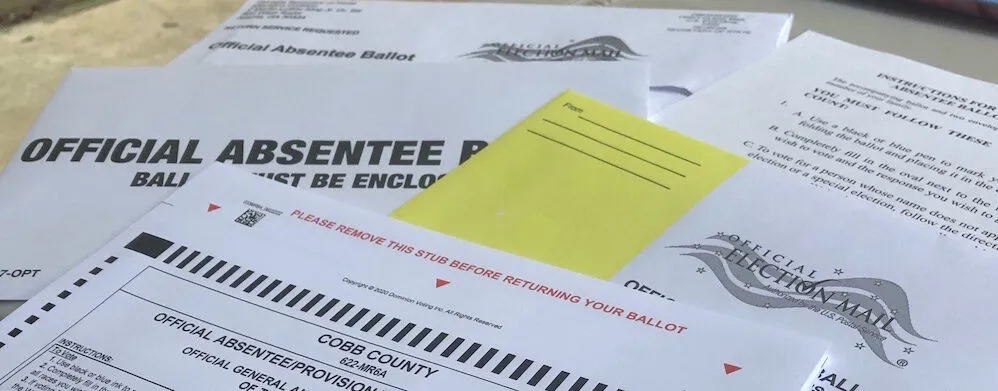Voting Rights
Ayota v. Fall
On October 31, 2024, just five days before the November 5 General Election, Cobb County announced that it had failed to send more than 3,000 absentee ballots to Cobb County voters who had timely requested them. Many of these voters are at school hundreds of miles away or have disabilities that make it all but impossible to vote in person. The ACLU and co-counsel sued on behalf of affected voters to ensure that they would not be disenfranchised because of the County's administrative error.
Status: Ongoing
View Case
Learn About Voting Rights
Featured
U.S. Supreme Court
Oct 2024
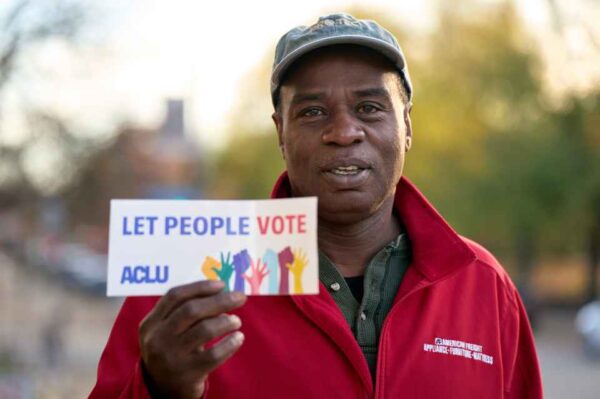
Voting Rights
Republican National Committee v. Genser
Voters in Butler County, Pennsylvania made a mistake in voting their mail ballots in the April 2024 primary election, forgetting to use the required secrecy envelope. Because their mail ballots could not be counted, they went to the polls in Election Day and voted provisional ballots. The County later determined that it would not count their provisional ballots, and the voter’s appealed, arguing that Pennsylvania law requires that when an eligible voter attempts to vote by mail but the mail ballot is rendered void due to some defect like lacking a secrecy envelope, the eligible voter may cast a provisional ballot and have that ballot counted notwithstanding the failed attempt to vote by mail.
Georgia
Oct 2024

Voting Rights
Eternal Vigilance Action, Inc. v. Georgia
The ACLU and partner organizations have sought to intervene in this case to represent the rights of voters and voting-rights organizations in a case challenging a number of rules passed by the Georgia State Election Board. We challenge a rule that requires that the number of votes cast be hand counted at the polling place prior to the tabulation of votes. This rule risks delay and spoliation of ballots, putting in danger voters’ rights to have their votes count.
Texas
Oct 2024
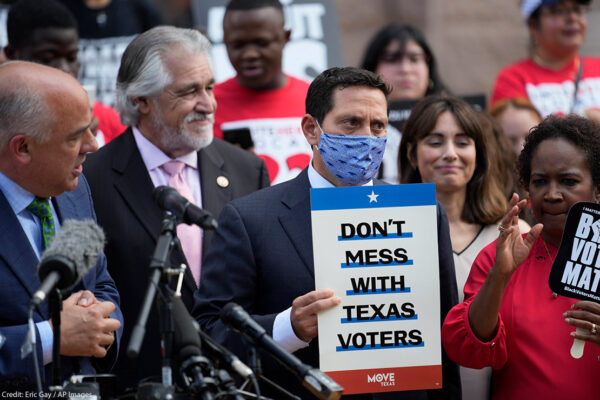
Voting Rights
OCA-Greater Houston v. Paxton
Texas has growing Hispanic and Black populations that helped propel record voter turnout in the November 2020 election. The Texas Legislature responded to this increased civic participation with an omnibus election bill titled Senate Bill 1—SB 1 for short—that targeted election practices that made voting more accessible to traditionally marginalized voters like voters of color, voters with disabilities, and voters with limited English proficiency. Since 2021, SB 1 has resulted in tens of thousands of lawful votes being rejected, and it remains a threat to democracy in Texas.
Michigan
Sep 2024
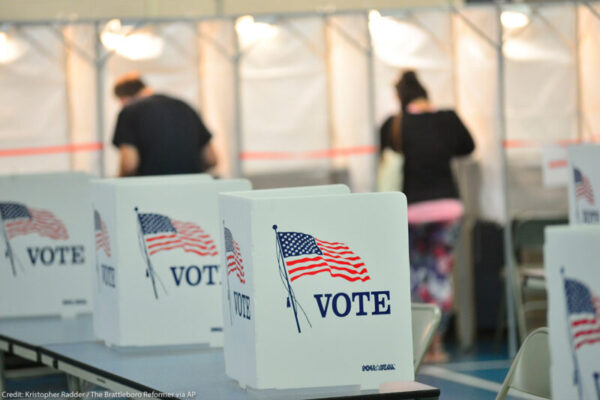
Voting Rights
ACLU of Michigan v. Froman
Michigan requires boards of county canvassers to certify the results of an election within 14 days after the election based on the total number of votes reported from each location. The law doesn't allow them to withhold certification. Kalamazoo Board of County Canvassers member, Robert Froman, has made clear that he would decline to certify the November 2024 election under certain circumstances. This lawsuit asks the state's courts to make clear that Mr. Froman is duty bound to certify the election based on the number of votes reported.
U.S. Supreme Court
Sep 2024

Voting Rights
Callais v. Landry
Whether the congressional map Louisiana adopted to cure a Voting Rights Act violation in Robinson v. Ardoin is itself unlawful as a gerrymander.
Ohio
Jul 2024
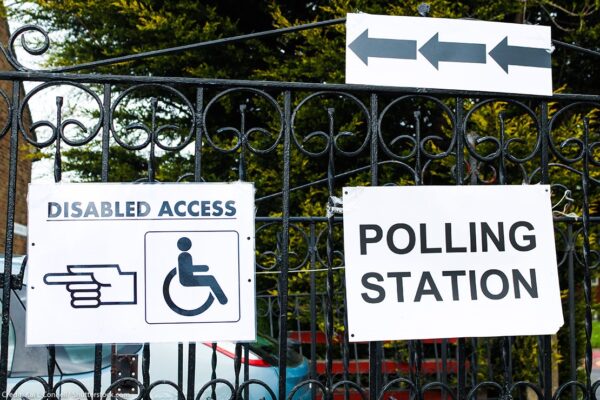
Voting Rights
League of Women Voters of Ohio v. LaRose
In Ohio, HB 458 makes it a felony for any person who is not an election official or mail carrier to return an absentee voter's ballot—including voters with disabilities—unless the person assisting falls within an unduly narrow list of relatives. We are challenging the law because it violates Section 208 of the Voting Rights Act (VRA) and the American with Disabilities Act (ADA) by making it exceedingly difficult for voters with disabilities to cast their ballots.
All Cases
149 Voting Rights Cases
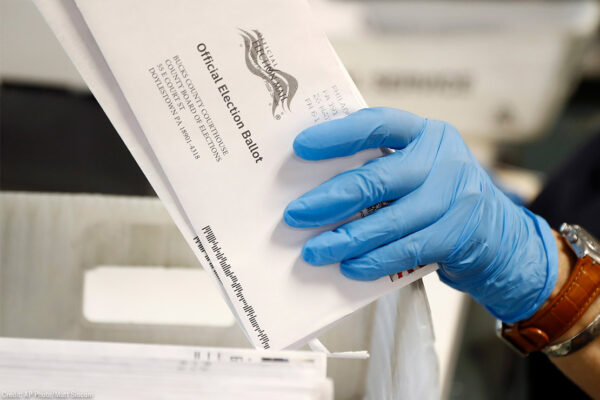
Pennsylvania Supreme Court
Sep 2024
Voting Rights
Black Political Empowerment Project v. Schmidt
A statewide coalition of nonpartisan community organizations sued state and county officials, asserting that the practice of disenfranchising voters for failure to handwrite the date on the outer return envelope of their mail ballot packet, despite the lack of any purpose or use for the handwritten date, violates the fundamental right to vote guaranteed by the Pennsylvania Constitution’s Free and Equal Elections Clause.
Explore case
Pennsylvania Supreme Court
Sep 2024

Voting Rights
Black Political Empowerment Project v. Schmidt
A statewide coalition of nonpartisan community organizations sued state and county officials, asserting that the practice of disenfranchising voters for failure to handwrite the date on the outer return envelope of their mail ballot packet, despite the lack of any purpose or use for the handwritten date, violates the fundamental right to vote guaranteed by the Pennsylvania Constitution’s Free and Equal Elections Clause.

Mississippi
Sep 2024
Voting Rights
Republican National Committee v. Wetzel (Amicus)
In 2020, in a nearly unanimous bipartisan vote, Mississippi joined eighteen other states in accepting mail ballots postmarked by Election Day that arrived after Election Day (in Mississippi’s case, up to five business days). This lawsuit by partisan actors seeks to disenfranchise these voters whose ballot is mailed by Election Day but—through no fault of their own—does not arrive until afterwards. In Mississippi, this harm will fall disproportionately on voters with disabilities, older voters, and other communities that rely upon absentee voting. Twisting the words and meaning of Congress, the RNC argues that three longstanding federal laws that set a uniform election day for federal races require that ballot may only be counted if they are received by election officials by Election Day. If accepted, this radical argument would not only disenfranchise thousands upon thousands of voters in Mississippi and eighteen other states, but also upend election administration in every state.
Explore case
Mississippi
Sep 2024

Voting Rights
Republican National Committee v. Wetzel (Amicus)
In 2020, in a nearly unanimous bipartisan vote, Mississippi joined eighteen other states in accepting mail ballots postmarked by Election Day that arrived after Election Day (in Mississippi’s case, up to five business days). This lawsuit by partisan actors seeks to disenfranchise these voters whose ballot is mailed by Election Day but—through no fault of their own—does not arrive until afterwards. In Mississippi, this harm will fall disproportionately on voters with disabilities, older voters, and other communities that rely upon absentee voting. Twisting the words and meaning of Congress, the RNC argues that three longstanding federal laws that set a uniform election day for federal races require that ballot may only be counted if they are received by election officials by Election Day. If accepted, this radical argument would not only disenfranchise thousands upon thousands of voters in Mississippi and eighteen other states, but also upend election administration in every state.
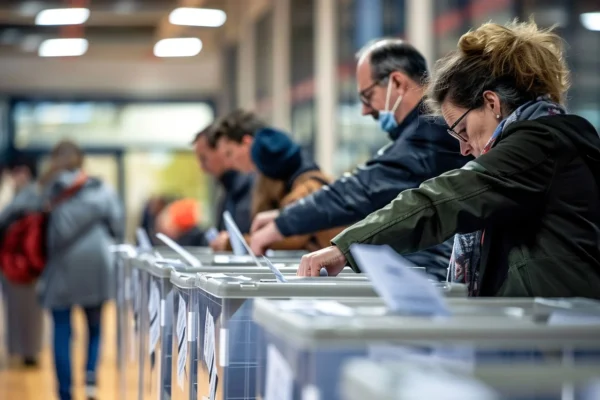
Georgia
Sep 2024
Voting Rights
Abhiraman v. State Election Board (Amicus)
The Georgia’s State Election Board recently passed two new rules about local election certification that threaten to disenfranchise thousands of Georgia voters. The rule changes are part of a nationwide effort by 2020 election-deniers to obtain positions on county election boards and weaponize certification for partisan ends at the expense of voters.
Explore case
Georgia
Sep 2024

Voting Rights
Abhiraman v. State Election Board (Amicus)
The Georgia’s State Election Board recently passed two new rules about local election certification that threaten to disenfranchise thousands of Georgia voters. The rule changes are part of a nationwide effort by 2020 election-deniers to obtain positions on county election boards and weaponize certification for partisan ends at the expense of voters.

U.S. Supreme Court
Aug 2024
Voting Rights
Western Native Voice v. Jacobsen
The American Civil Liberties Union, ACLU of Montana, Native American Rights Fund (NARF), and the Harvard Election Law Clinic challenged two Montana laws that hinder Native American participation in the state’s electoral process — HB 530, which prohibited paid third-party ballot collection; and HB 176, which repealed Election Day voter registration (EDR) in Montana. Together, these laws violate a number of provisions in the Montana Constitution: the right to vote, equal protection, free speech, and due process.
Explore case
U.S. Supreme Court
Aug 2024

Voting Rights
Western Native Voice v. Jacobsen
The American Civil Liberties Union, ACLU of Montana, Native American Rights Fund (NARF), and the Harvard Election Law Clinic challenged two Montana laws that hinder Native American participation in the state’s electoral process — HB 530, which prohibited paid third-party ballot collection; and HB 176, which repealed Election Day voter registration (EDR) in Montana. Together, these laws violate a number of provisions in the Montana Constitution: the right to vote, equal protection, free speech, and due process.

Delaware
Aug 2024
Voting Rights
Prisoner’s Legal Advocacy Network v. Carney
Right now, an entire class of eligible voters in Delaware — those incarcerated in Delaware facilities while awaiting trial (“pretrial detainees”) or who have been convicted of misdemeanors, which are not disqualifying under state law (together with pretrial detainees, “eligible incarcerated voters”)—have no constitutional means of voting. Delaware does not permit in-person voting in its correctional facilities. And a recent Delaware Supreme Court decision has now foreclosed these voters from voting absentee. This leaves these voters completely disenfranchised ahead of the 2024 elections, in violation of the Fourteenth Amendment to the U.S. Constitution.
Explore case
Delaware
Aug 2024

Voting Rights
Prisoner’s Legal Advocacy Network v. Carney
Right now, an entire class of eligible voters in Delaware — those incarcerated in Delaware facilities while awaiting trial (“pretrial detainees”) or who have been convicted of misdemeanors, which are not disqualifying under state law (together with pretrial detainees, “eligible incarcerated voters”)—have no constitutional means of voting. Delaware does not permit in-person voting in its correctional facilities. And a recent Delaware Supreme Court decision has now foreclosed these voters from voting absentee. This leaves these voters completely disenfranchised ahead of the 2024 elections, in violation of the Fourteenth Amendment to the U.S. Constitution.
